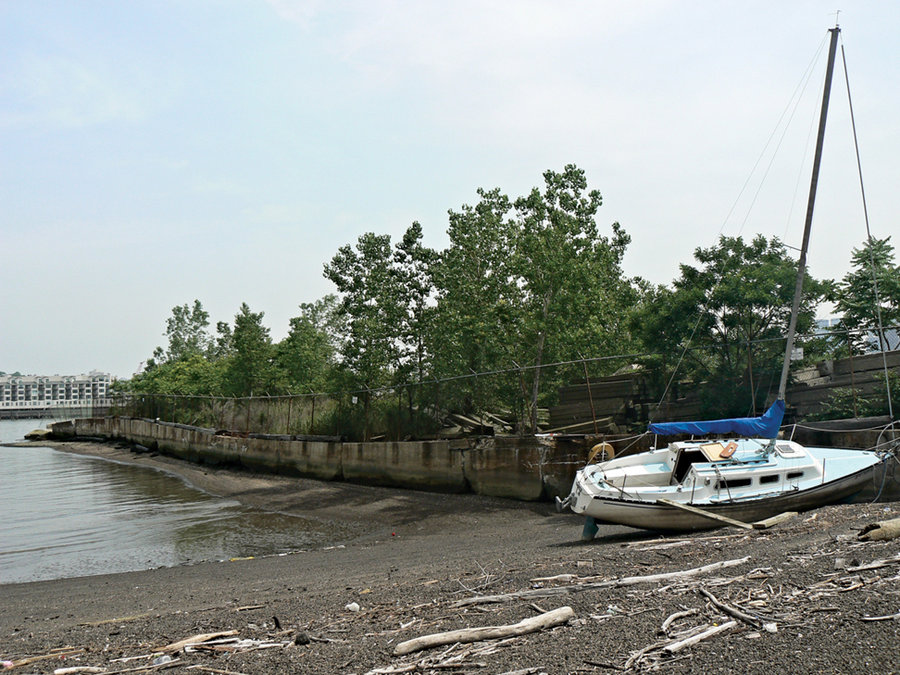In a major turn of events, the Hudson County Superior Court last month granted automatic approval to a controversial plan to build two residential towers on a Hoboken pier, overturning rejections of the plan by the Hudson County Planning Board and Hudson County Board of Chosen Freeholders.
The plan has been criticized by Mayor Dawn Zimmer, who wants the developers to create open space on the piers as they had agreed 18 years ago.
However, the developer has yet to secure construction permits for the site and the court decision is almost certain to be appealed.
The dilapidated pier on Hoboken’s extreme northeastern corner would host the last portion of the Shipyard development, which has added over 1,000 high-end residential units to Hoboken’s burgeoning North End. The developer, Shipyard Associates LP, initially committed to build tennis courts and parking on the pier in its 1997 PUD agreement, but in 2011 decided instead to seek two additional buildings totaling 78 residential units.
The May 21 Superior Court ruling reverses the only standing rejection preventing Shipyard Associates from moving forward with its proposed 11-story towers, known as “Monarch at Shipyard.”
“Boards may not deny applications based on vague and general concepts such as public welfare.”—Patrick Arre
____________
Two other Monarch-related cases await final judgment. In state appellate court, the city of Hoboken has challenged the New Jersey Department of Environmental Protection’s decision to approve the Monarch site plan in 2011, and in federal court, Shipyard Associates is challenging Hoboken’s 2013 flood damage prevention ordinance, which bans residential development on waterfront piers.
Judges’ reasoning
So far, judges have favored Shipyard Associates’ legal arguments in all of their decisions regarding the Monarch project. In 2013, the county Superior Court ruled that the 1997 developer’s agreement was a “complementary document” and could not be used to prevent Shipyard from seeking new residential buildings before the relevant land use boards.
The lawyer for Shipyard Associates and the principal of its parent company, Ironstate Development, both declined to comment on the case, citing the fact that it is currently in litigation.
City, activists ready to fight
Zimmer says the development would create a huge public safety issue by placing hundreds of new residents on a pier that would be highly susceptible to flooding in the event of another Superstorm Sandy. This past week, Zimmer said she was eager to move the Monarch cases into state appellate court and is ready to fight all the way to the state Supreme Court if necessary.
The city of Hoboken is not a party to the county Planning Board case, but its appeals in the cases involving the city Planning Board and the 1997 developer’s agreement could not advance until the county questions were answered.
Tiffanie Fisher, the president of the Hudson Tea Building Condo Association (HTBCA), called last month’s Superior Court ruling “a disappointing and unfortunate outcome for our entire Hoboken community.” The upscale Hudson Tea Building lies directly west of the Monarch’s proposed location, and its east-facing residents would lose much of their Hudson River view if the towers were built.
Fisher said the Monarch legal fight was fundamentally about getting Shipyard Associates to honor its prior commitments and build the public amenities it had promised in exchange for being allowed to build hundreds of luxury residential units.
Eric Goldberg, the lawyer for the HTBCA, said he planned to appeal the Superior Court’s ruling.
The lawyer for the Hudson County freeholder board declined to comment, and the lawyer for the Hudson County Planning Board did not respond to requests for comment via telephone and email.
Judge: Planning Board missed deadline
The Superior Court ruling on the Monarch application before the Hudson County Planning Board was decided primarily on technical grounds. Under state law, county planning boards have only 30 days to act on site plan applications once they are deemed complete, unless they get permission for an extension from both the applicant and the relevant city planning board.
According to Superior Court Judge Patrick J. Arre, after the county Planning Board declined to vote on the Monarch application at a January 2012 hearing, it got permission for an extension from Shipyard, but made no effort to contact the Hoboken Planning Board.
A second hearing was subsequently held in February 2012, outside the 30-day window, at which the Monarch application was rejected. However, due to the lack of go ahead from the city planning board, Judge Arre deemed Shipyard’s application is automatically approved.
Arre went on to rule that, had the Planning Board’s decision been made within the legally mandated time slot, it still would have been “arbitrary, capricious and unreasonable.”
The Hudson County Planning Board’s oversight of development projects in Hoboken is limited to the effect they will have on sewers and county roadways, and Arre said no evidence presented at the board hearings contradicted the testimony of Shipyard engineers that the Monarch project would have no negative effect on adjacent road traffic.
“The board has failed to set forth how granting Shipyard’s application would affect county roadways or drainage systems, and can only point to broad notions of public welfare and safety it believes will be affected,” wrote Arre. “Boards may not deny applications based on vague and general concepts such as public welfare, health, safety, or other concerns not enumerated in any ordinance.”
After the Planning Board’s February 2012 denial of the Monarch plans, Shipyard challenged the decision in court, and Hudson County appellate court judge Nesle Rodriguez eventually remanded the appeal to the freeholder board, which heard the case last October, affirming the planning board’s rejection.
Last month, Judge Arre also overturned the freeholders’ decision, ruling that they had heard inadmissible new evidence and relied too heavily on the judgment of the Planning Board, both of which violated the rules governing that type of appeal hearing.
Carlo Davis may be reached at cdavis@hudsonreporter.com.
